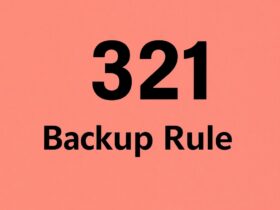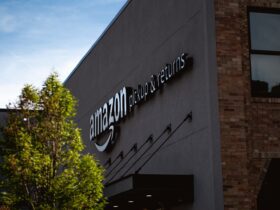If you’re looking for rental software for your business, this article is going to help you find the one that’s perfect for you. It delves into the different types of software out there and gives you a couple of quick tips on how to make an informed decision based on your unique needs.
Why do you need rental software?
The benefits of using rental software for your business are numerous. When you use rental software, you can quickly and easily manage your rentals, making it easier to keep track of inventory and bookings. You can also see real-time updates on bookings and inventory, which can help you make more informed decisions about how to run your business. Additionally, rental software can automate many of the processes involved in renting out a property, including filling out forms and tracking payments. This can save you time and money.
How to find the best rental software for your business?
When it comes to finding the right rental software for your business, there are a few things you need to take into account. First, what type of business are you in? Are you an online retailer or service provider? Second, what are your needs? Do you need inventory tracking, billing, and payments? Third, how much money do you want to spend? Do you want a comprehensive package that will cover all aspects of your business, or should you focus on specific areas?
Once you have answered these questions, it’s time to look at the different rental software options available. Some of the most popular packages include QuickBooks Rental Property Management and Microsoft Dynamics 365 Rental. Both offer comprehensive solutions that cover everything from inventory management to billing and payments. However, if you’re looking for a more general package, then Presto! Rentals Suite may be the better choice for you. It’s a lightweight solution that doesn’t require any upfront investment and is compatible with a variety of platforms.
Ultimately, the best way to find the right rental software for your business is to trial different packages until you find one that meets all your needs. And don’t forget—there are also many free rental software options available if budget is an issue.
How much does rental software cost?
The cost of rental software varies depending on the type and features of the product. However, most rental software products typically fall into one of two categories: subscription-based or license-based.
Subscription-based rental software is typically more expensive than license-based rental software, but it offers a number of benefits, such as access to the product at any time and from anywhere, no need to reinstall the software every time you want to use it, and support from the vendor if you have questions or problems.
License-based rental software is cheaper than subscription-based rental software, but it doesn’t offer these benefits. Instead, you have to purchase a license for each machine or device on which you want to install the software.
What is the difference between online and traditional rental software?
Online rental software is a type of software that helps landlords manage their rental properties. It allows them to keep track of who has rented what property, when, and for how long. Online rental software can also help landlords set up automatic payments and manage bookings.
Traditional rental software is a type of software that was originally designed for landlords to use to manage their rental properties. It helps landlords keep track of who has rented what property, when, and for how long. Traditional rental software can also help landlords set up automatic payments and manage bookings.
What are the benefits of online rental software?
When it comes to renting equipment, most businesses prefer online rental software. This type of software makes the entire process easier and faster for both landlords and tenants. Here are some of the benefits of using rental software:
- Rental software makes it easy to find and book equipment.
- It helps landlords manage their rentals more efficiently.
- It automates the rental process for tenants, making it easier for them to get the equipment they need without any hassle.
- It can help landlords save money on rental fees.
How to use rental software?
Trying to find the best rental software for your business can be daunting. There are so many options out there, and it can be hard to know which one is best for your needs. Here are some tips on how to choose the right software:
First, consider what you need the software for. Do you need a system to manage rentals? Or do you just need a way to track inventory?

Next, consider your budget. You don’t need the most expensive software out there, but you also don’t want something that’s too cheap and will end up costing you more in the long run.
Then, think about what other features you would like the software to have. Some rental software comes with features like online booking capabilities or inventory tracking that may not be necessary for your business. If possible, try to find a package that has all of the features you need without being too expensive.
Finally, make sure to read reviews before making a purchase. Not all rental software is created equal and some complaints about certain programs may not be true. By reading reviews, you can weed out the bad products from the good ones and make an informed decision about which software is right for your business.
Alternatives to renting a property
When it comes to rental property management, there are a variety of software options available to choose from.
Below is a list of some of the most popular rental software programs and their features:
- Rental Property Manager (Real Estate Software): This software is designed to help manage rental properties from start to finish, including generating monthly reports, submitting applications, handling payments, and more. It also includes tools for marketing your properties and tracking tenant information.
- Tenant Relationship Management (TRM) Software: TRM software helps landlords manage their tenant relationships by providing access to applicant history, detailed contact information, rent histories, and more. TRM can also automatically send notices and invoices to tenants, as well as keep track of repairs/maintenance requests.
- Property Management Systems (PMS): PMS systems offer landlords a comprehensive solution that can include everything from property management functions such as leasing, billing, and scanning documents to online CRM capabilities for managing customer relations. Some systems even have built-in analytics that provides real-time insights into how your property is performing.





























